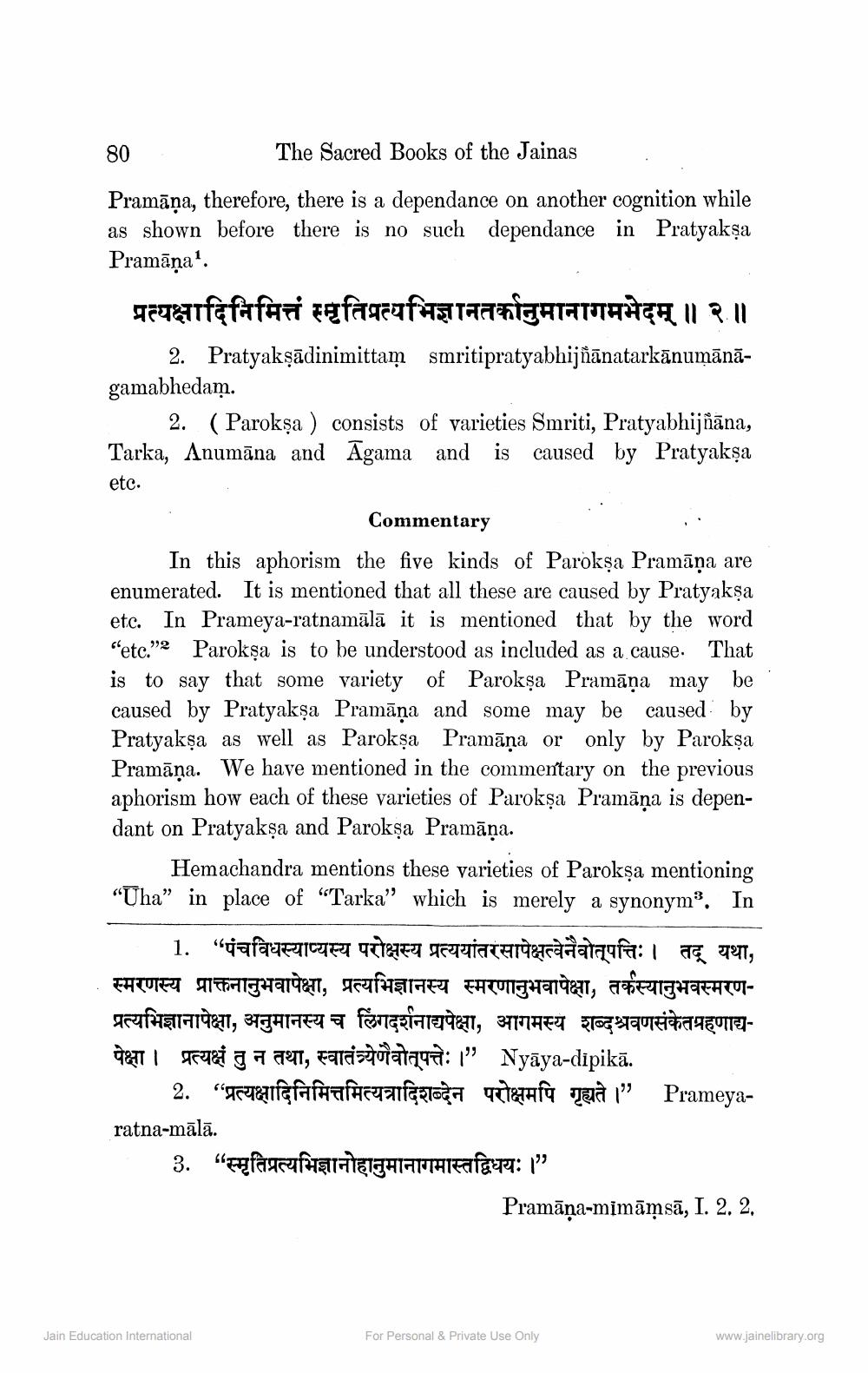________________
The Sacred Books of the Jainas
Pramāṇa, therefore, there is a dependance on another cognition while as shown before there is no such dependance in Pratyakṣa Pramāņa1.
80
geuxıfqfafazi zgfaqeqfagnaazigananTNAĤĘK || 2. ||
2. Pratyakṣadinimittam smritipratyabhijñānatarkānumānāgamabhedam.
2. (Parokṣa) consists of varieties Smriti, Pratyabhijñāna, Tarka, Anumana and Agama and is caused by Pratyakṣa
etc.
Commentary
In this aphorism the five kinds of Parokṣa Pramāņa are enumerated. It is mentioned that all these are caused by Pratyakṣa etc. In Prameya-ratnamālā it is mentioned that by the word "etc." "2 Parokṣa is to be understood as included as a cause. That is to say that some variety of Parokṣa Pramāņa may be caused by Pratyakṣa Pramāņa and some may be caused by Pratyakṣa as well as Parokṣa Pramāņa or only by Parokṣa Pramāņa. We have mentioned in the commentary on the previous aphorism how each of these varieties of Parokṣa Pramāņa is dependant on Pratyakṣa and Parokṣa Pramāņa.
Hemachandra mentions these varieties of Parokṣa mentioning "Uha" in place of "Tarka" which is merely a synonym3. In
1. “पंचविधस्याप्यस्य परोक्षस्य प्रत्ययांतरसापेक्षत्वेनैवोत्पत्तिः । तद् यथा, स्मरणस्य प्राक्तनानुभवापेक्षा, प्रत्यभिज्ञानस्य स्मरणानुभवापेक्षा, तर्कस्यानुभवस्मरणप्रत्यभिज्ञानापेक्षा, अनुमानस्य च लिंगदर्शनाद्यपेक्षा, आगमस्य शब्दश्रवणसंकेतग्रहणाद्यपेक्षा । प्रत्यक्षं तु न तथा, स्वातंत्र्येणैवोत्पत्तेः ।" Nyāya-dipika.
2. “प्रत्यक्षादिनिमित्तमित्यत्रादिशब्देन परोक्षमपि गृह्यते । " Prameya
ratna-mālā.
3. “ स्मृतिप्रत्यभिज्ञानोहानुमानागमास्तद्विधयः ।”
Jain Education International
Pramāṇa-mimāmsā, I. 2. 2,
For Personal & Private Use Only
www.jainelibrary.org




